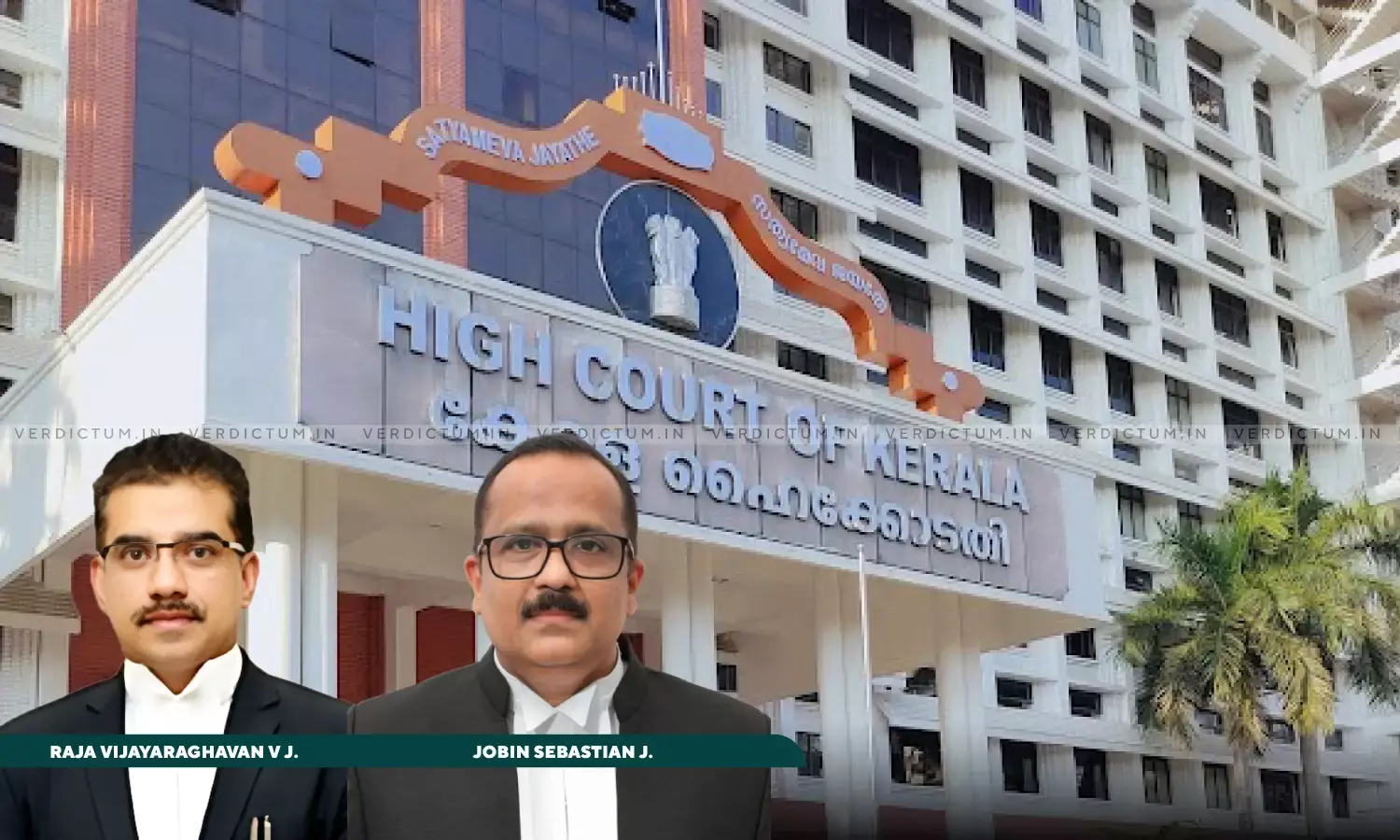Section 107 CrPC And KAAPA Proceedings Operate In Different Spheres: Kerala High Court
The Kerala High Court observed that proceedings under section 107 of CrPC and the provisions under the Kerala Anti-Social Activities (Prevention) Act, 2007 operate in different spheres.
The High Court affirmed that in cases where proceedings under Section 107 Cr.P.C are initiated, the Authorities should consider whether it is necessary to preventively detain or extern the person concerned.
The Writ Petition was filed before the High Court assailing an order of restriction passed against the petitioner under Section 15(1)(b) of the Kerala Anti-Social Activities (Prevention) Act, 2007.
The Division Bench comprising Justice Raja Vijayaraghavan V and Justice Jobin Sebastian said, “It was therefore that this court as well as the Apex Court have held that in cases where proceedings such as those under Section 107 Cr.P.C are initiated, the authorities should consider whether, in spite of the initiation of such proceedings it is necessary to preventively detain or extern the person concerned and that on such examination if the authorities are satisfied that detention or externment is necessary, it is open to the authorities to validly do so.”
Advocate Jithin Babu A represented the Petitioner while Senior Public Prosecutor T.V. Neema represented the Respondent-State.
The records revealed that proceedings were initiated against the petitioner under Section 15(1)(a) of the KAA(P) Act, 2007 and the petitioner had been classified as a “known rowdy” as defined under Section 2(p)iii of KAA(P) Act, 2007. A show cause notice was also issued. The authorised officer after considering the reply and hearing the petitioner, passed an order under Section 15(1)(b) of the KAA(P) Act restraining the petitioner from entering Thrissur Revenue District for a period of six months from the date of receipt of the order. Being aggrieved by the said order, though the petitioner approached the Advisory Board, the Board confirmed the order of externment issued by the competent authority.
It was the Petitioner’s case that there was an inordinate delay in passing the externment order after the date of last prejudicial activity and thus the live link last prejudicial act and the purpose of the externment order was snapped. It was also contended that there was no need to initiate proceedings under the KAA(P) Act particularly when proceeding under Section 107 of the Code of Criminal Procedure had already been initiated against the petitioner.
Arguing that there wasn’t any delay in passing the externment order after, the Public Prosecutor submitted that proceedings under Section 107 Cr.P.C. and under Section 15(1) of KAA(P)Act operate in different spheres and initiation of proceedings under 107 Cr.P.C. will not preclude the power of the competent authority to pass an order under Section 15(1) of the KAA(P) Act.
At the outset, the Bench noted that the petitioner was classified as a “known rowdy” due to his involvement in three cases. It was observed that there exists no rigid or inflexible standard to determine whether the delay in issuing the externment order subsequent to the last prejudicial activity is fatal. It depends upon the facts and circumstances of each case.
On the issue of delay, the Bench stated that the impugned order was passed four months and 21 days after the commission of the last prejudicial activity. However, having considered the sequence of events and the facts and circumstances, it held that the delay in passing the order couldn’t be said to be inordinate so as to snap the live link with the last prejudicial activity.
On the issue of interplay between Section 15(1) of KAA(P)Act & section 107 Cr.P.C. , the Bench explained that proceedings under S.107, Cr. P.C, is in the nature of security for keeping public tranquility and the free movement of such a person is not curtailed at all. However, the power of externment under section 15(1) allows an authorized officer to restrain an individual, identified as a "Known goonda" or "non-rowdy" under the Act, from entering specified areas.
“In other words, 107 proceedings and the provisions under the KAAP Act operate in different spheres. At the same time, it has to be borne in mind that in a case where it is possible to prevent the detenu from continuing his anti-social activity by methods other than his preventive detention, the authorities are bound to adopt those methods rather than depriving the detenu his rights under Article 21 of the Constitution of India”, it held.
“In our view, this satisfaction of the detaining authority is fully justified because on facts we notice that after the initiation of 107 proceedings, the detenu got himself involved in Crime No 52/24 of the Cheruthuruthi Police Station involving grievous offences of the nature specified in Section 2(t) of the Act”, the Bench concluded.
Thus, clarifying that the competent authority passed the externment order after thoroughly verifying all the materials placed by the sponsoring authority and after arriving at the requisite satisfaction, the Bench dismissed the petition.
Cause Title: Yasar Arafath A.M. vs. State Of Kerala [Neutral Citation: 2024:KER:81594]
Appearance:
Petitioner: Advocates Jithin Babu A, Arun Samuel, Anood Jalal K.J.
Respondent: Senior Public Prosecutor T.V. Neema




